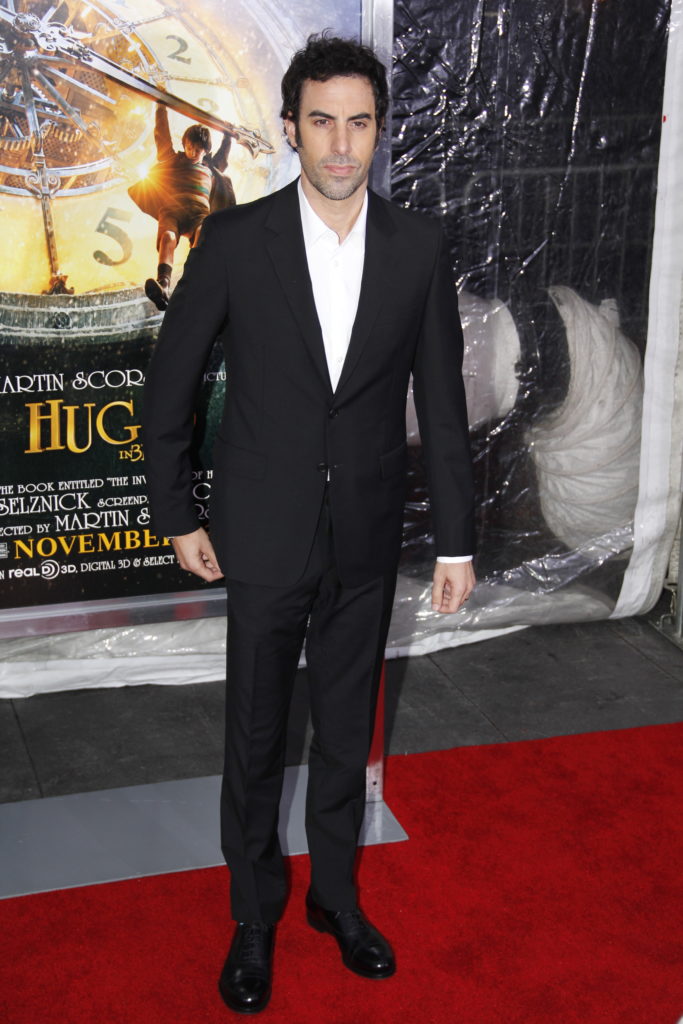“Who Is America” and the Ethics of Comedy through Deceit

Last week marked the first season finale of Sacha Baron Cohen’s reality television show, Who Is America. The show, which premiered on Showtime early in July, is based on the premise of pranking American politicians, reporters, and even everyday voters into saying or doing embarrassing things on camera. Cohen’s victims have included former Senatorial candidate from Alabama Roy Moore, former U.S. Vice President Dick Cheney, and football star and accused murderer O.J. Simpson.
Often, guests on the show, including Moore and Simpson, do not respond to Cohen’s pranks. However, Who Is America has tricked some public figures into performing seriously reckless and vile acts. For instance, Cohen, disguised as the fictional Israeli anti-terror expert, Captain Erran Morad, incited former Congressman from Illinois and now a conservative radio host, Joe Walsh, into endorsing the made-up “Kinderguardian” program intended to arm kindergarteners in schools. “The intensive three-week Kinderguardian course introduces specially selected children from 12 to 4 years old to pistols, rifles, semi-automatics, and a rudimentary knowledge of mortars,” explained Walsh in the episode. “In less than a month — less than a month — a first-grader can become a first-grenade-er. Happy shooting, kids.” While Walsh largely managed to dodge intense criticism after the episode aired by disavowing the prank, saying he was unfairly “duped” by Cohen, Who Is America has proven to be detrimental for some of its guests’ careers.
Perhaps the most infamous example of this was the fall of Georgia State Representative Jason Spencer. Spencer originally gained public notoriety last year from his proposed ban on burqas (full-body garbs traditionally worn by Muslim women) in his district, and for making ambiguous death threats towards another Georgia State Representative. These actions caught Cohen’s attention, and Spencer was invited to appear on the show in mid-July. In the bit featuring Spencer, Cohen, again under disguise as Captain Morad, set up a fake anti-terrorism combat course for Spencer in which the politician dropped his pants, made homophobic comments, and yelled racial epithets knowingly on camera.
Spencer issued a statement shortly after the episode was aired, saying he believed himself to be filming a “demonstration video” to showcase anti-terror tactics used in Israel. He chastised Cohen and his crew for “exploiting” him for “profit and notoriety.” About a week later, Spencer announced his resignation from the Georgia House of Representatives.
While Who Is America succeeds in its comedic pursuits, are Cohen’s methods ethically permissible? Where should the line be drawn in publically deceiving someone for comedic purposes? Moreover, is it unfair that Cohen primarily targets conservative politicians and public figures?
It could be slightly presumptuous to classify Cohen’s pranks as “deception.” As Paul Farhi of The Washington Post points out, all the guests on “Who Is America” are aware that they’re being filmed. “They [the guests] know they’re making a television show,” Farhi stated in a radio interview, “so they are effectively speaking to the public.” However, Cohen does lie about who he is and where the content he is producing will be aired. In the case of Joe Walsh, Cohen told him that the Kinderguardian program would be implemented in Israel rather than the U.S. (though Walsh’s endorsement of this fictional program, no matter where it would have been aired, still displayed his own insolence). Furthermore, Cohen’s pranks seem to be protected by federal and state laws. Multiple guests on his show including Walsh, Spencer, and Moore have threatened to pursue legal action against the comedian, but without much avail considering that they all signed legal releases prior to filming. Similar legal situations have transpired with Cohen’s past comedic endeavors, but few prosecutors won their suits against him.
Many critics of Who Is America have also accused Cohen of unfair bias, as most of the victims of his pranks are right-wing. The first step in determining whether these criticisms hold true is unpacking whether or not Cohen has political intentions with his show. One way we might do this is by looking at his interactions with the handful of left-wing guests he has hosted, including former presidential candidates Bernie Sanders, Jill Stein, and Howard Dean. Cohen stayed under disguise as fictional far-right conspiracy theorist, Billy Wayne Ruddick Jr., for his separate interviews with Sanders, Stein, and Dean, but the segments stayed fairly tame in relation to his episodes with Spencer and Walsh. This makes the political intentions of Cohen’s show rather clear. However, whether or not this bias is “unfair” remains contentious.
Some conservatives may see Cohen as being a prejudiced host for targeting their political beliefs, but many of the people who appear on his show are more than just conservatives. Figures such as Roy Moore, Jason Spencer, and Joe Walsh have proven themselves to be racist, sexually deviant, and discriminatory against Islam, and Who Is America sets out to expose these intolerant attitudes held by people in the United States who hold power. Spencer’s resignation should not be seen as an attack on the conservative mindset, but as a victory for all of the U.S. in ousting a politician who is clearly unfit to determine laws. Through Who Is America, Cohen is attempting to change the ways in which politicians are judged by Americans.




